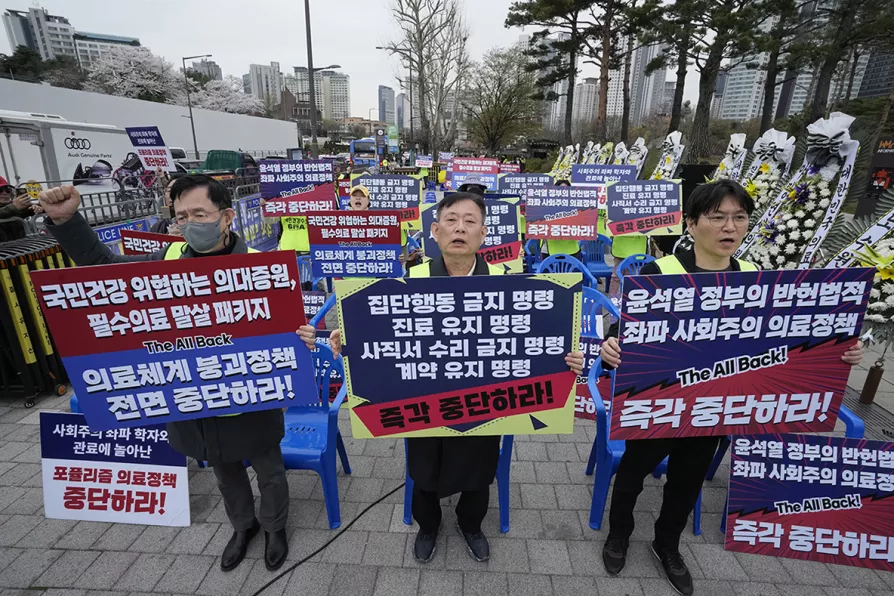South Korea's president meets striking doctors' leader, seeking an end the walkouts

 Members of the Gyeonggi Province Medical Association stage a rally against the government's medical policy near the presidential office in Seoul, South Korea, April 3, 2024
Members of the Gyeonggi Province Medical Association stage a rally against the government's medical policy near the presidential office in Seoul, South Korea, April 3, 2024
SOUTH Korean President Yoon Suk Yeol met the leader of a strike by thousands of junior doctors today and said the government is open to talks about its contentious push to sharply increase medical school admissions.
The meeting was the first of its kind since more than 90 per cent of the country’s 13,000 trainee doctors walked off the job in February, disrupting hospital operations. But there was still no immediate report of a breakthrough after the meeting.
During a lengthy televised public address on Monday, Mr Yoon defended his plan to recruit 2,000 more medical students each year, from the current cap of 3,058.
More from this author

Ben Cowles previews his interview with Stand Up to Racism’s SABBY DHALU for the Morning Star’s new Youtube channel















